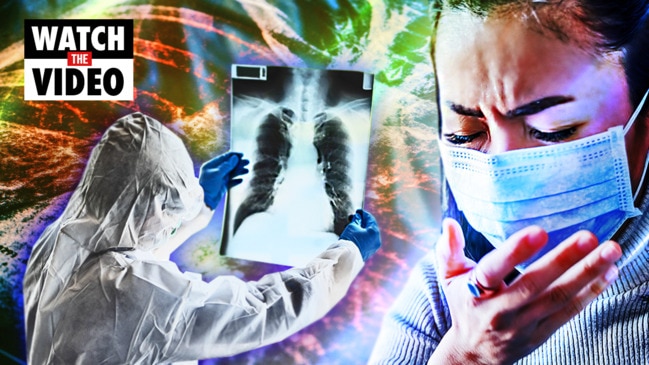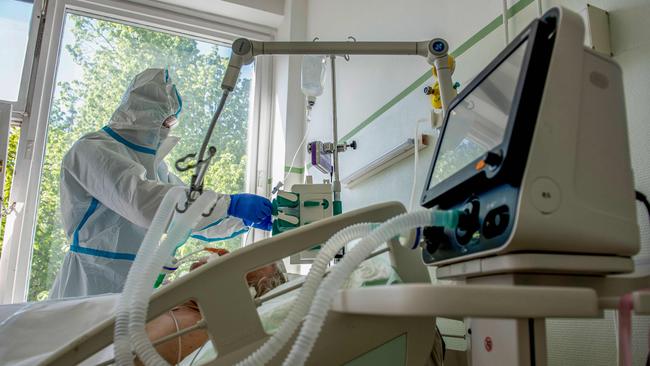Long-term impact of coronavirus on human body revealed
The horrific long term effects of Covid on the brain — long after symptoms have eased — has been uncovered in a shock study.

Coronavirus
Don't miss out on the headlines from Coronavirus. Followed categories will be added to My News.
People who have recovered from Covid-19 are more likely to score poorly on intelligence tests, research has revealed.
And the sickest patients, who needed ventilation to survive the virus, had a mental decline equivalent to the brain having aged 10 years.
The findings from the large British study add to the growing body of research showing the virus has long-term effects on the brain and other organs, long after respiratory symptoms have eased.
Brain scientists from Imperial College London analysed results of The Great British Intelligence Test.
The online IQ test was promoted by the BBC and completed by more than 81,000 people, including almost 13,000 who had been infected with Covid-19.
After accounting for variables such as age, medical history and occupation, researchers found those who had contracted the virus performed worse than expected. Those who had been on ventilators had the biggest deficit, equal to a seven-point drop in IQ.

“The deficits were most pronounced for paradigms that tapped cognitive functions such as reasoning, problem solving, spatial planning and target detection,” the authors wrote.
“These results accord with reports of long-Covid, where ‘brain fog’, trouble concentrating and difficulty finding correct words are common.” Their research was published in the Lancet journal EClinicalMedicine.
Associate Professor Mahesh Jayaram, of the University of Melbourne, who is also a consultant psychiatrist at NorthWestern Mental Health, said while the British study could not prove cause and effect, the results did “reveal things we already know about Covid-19”.
“Long Covid is an umbrella term that encompasses things like extreme tiredness, memory issues, depression and anxiety, respiratory and neuro-muscular complications,” he said.
“We don’t have any tests to say this is long Covid. We’re just trying to come to grips with it, and there are some interesting studies coming out.
“They’ve been able to do autopsy studies and detect the virus in the brain and other tissue. Another paper showed incidence of dementia increased by about 19 per cent in those with Covid-19.”
Professor Jayaram, who is researching patient experiences post-virus to track long-term effects, said prevention remained the best protection.
“We just don’t know how many organ systems it’s going to affect and the long-term sequelae,” he said. “If kids get it, what’s going to happen by the time they are 14? Or if a pregnant woman gets it, what’s the impact on the newborn?
“Prevention is the best thing, for now. The second thing is vaccination.”




